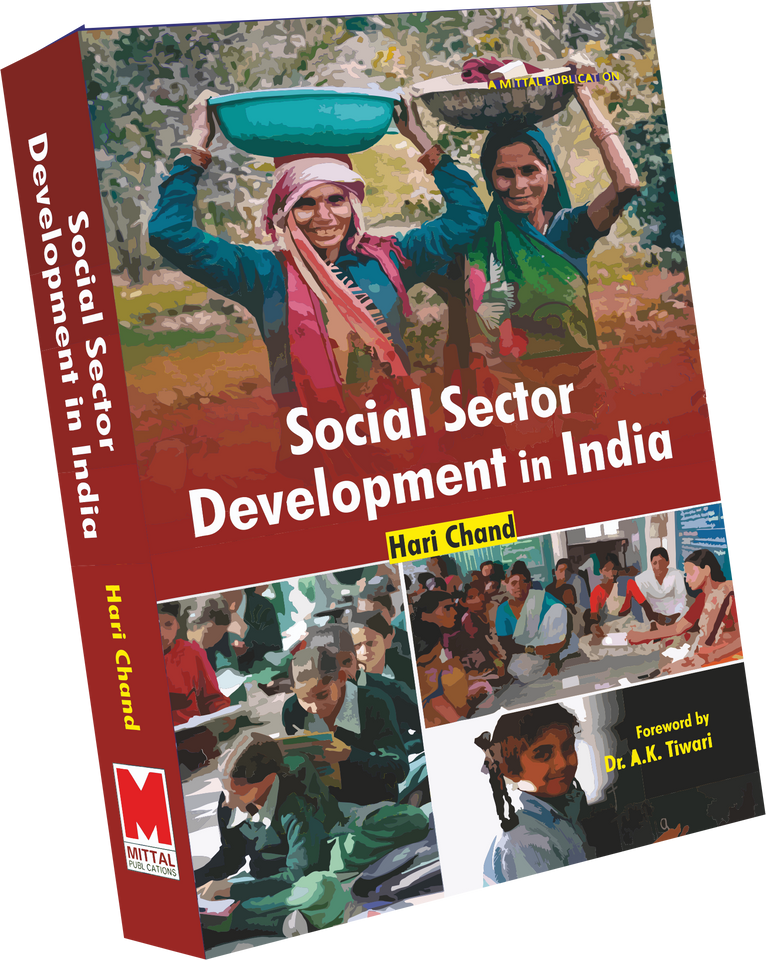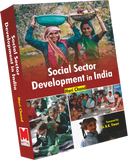Social Sector Development in India by Hari Chand Foreword by A.K. Tiwari
Regular price
Rs. 1,800.00
Social sector refers to all those sectors that are essential for improving the quality of life
of the people. It includes not only sectors like education, health and nutrition, but also those sectors that are concerned with eradication of poverty and other programmes of social welfare. In a broader sense, the issues related to gender discrimination, environmental degradation, etc. also come under the purview of social sector development. Social sector incorporates those sectors that contribute to an enhancement of human capital. However, this mainly relies on private initiatives to investment in education, health, etc. It does not consider issues like poverty discrimination and social backwardness and, hence, ignores the consequent inability of individuals to avail the opportunity of investing in themselves. It is, thus, considered to be of limited utility for the analysis of social sectors in countries characterized by pervasive poverty and social backwardness. It is quite obvious from the definition of social sector that the level of development of this sector directly affects the level of human development of a region However, the social sector can play a vital role in influencing the rate of economic growth as well. As the social sector develops, quality of life improves, leading to better quality human capital that leads to higher total factor productivity. Thus, the achievement in economic front is closely dependent on and related to that in social sector. The discussion of the preceding section suggests that social sector provides the requisite framework for attaining a desired level of human development.
Hence, the development of this sector is very crucial. The level of social sector development of a country depends on various factors. But perhaps the most important factor affecting the development of social sector is the political commitment to this area that determines the level of public spending on these sectors. It is hoped that the book will be of direct interest and used to academics, development planners, policy makers and research scholars.
of the people. It includes not only sectors like education, health and nutrition, but also those sectors that are concerned with eradication of poverty and other programmes of social welfare. In a broader sense, the issues related to gender discrimination, environmental degradation, etc. also come under the purview of social sector development. Social sector incorporates those sectors that contribute to an enhancement of human capital. However, this mainly relies on private initiatives to investment in education, health, etc. It does not consider issues like poverty discrimination and social backwardness and, hence, ignores the consequent inability of individuals to avail the opportunity of investing in themselves. It is, thus, considered to be of limited utility for the analysis of social sectors in countries characterized by pervasive poverty and social backwardness. It is quite obvious from the definition of social sector that the level of development of this sector directly affects the level of human development of a region However, the social sector can play a vital role in influencing the rate of economic growth as well. As the social sector develops, quality of life improves, leading to better quality human capital that leads to higher total factor productivity. Thus, the achievement in economic front is closely dependent on and related to that in social sector. The discussion of the preceding section suggests that social sector provides the requisite framework for attaining a desired level of human development.
Hence, the development of this sector is very crucial. The level of social sector development of a country depends on various factors. But perhaps the most important factor affecting the development of social sector is the political commitment to this area that determines the level of public spending on these sectors. It is hoped that the book will be of direct interest and used to academics, development planners, policy makers and research scholars.
Guaranteed Safe Checkout





